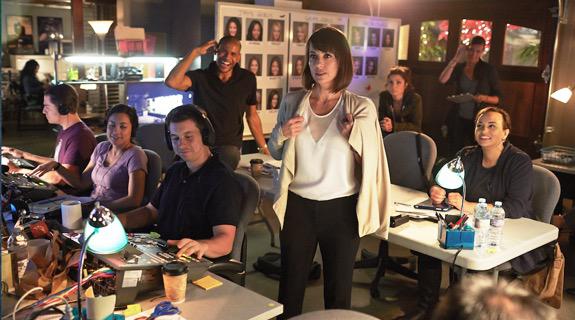Series’ digital performance may finally be coming into line with Nielsen ratings, if networks’ decisions about summer show renewals are any indication.
So far this summer, three critically acclaimed shows whose ratings didn’t necessarily appear to warrant it — USA’s Mr. Robot, Lifetime’s UnREAL and NBC’s Aquarius — have scored second-season renewals. In the case of Mr. Robot, that renewal came before the show had even made its June 24 debut on the network.
Early linear ratings for all three shows have been nothing to write home about. Mr. Robot averaged a 0.5 among adults 18-49 in its debut, while UnReal’s pilot drew only 587,000 viewers among adults 18-49 in the live-plus-three-day ratings, but these shows have shown enough life online and in social media to make them worth keeping around, according to execs. For example, UnReal’s first three episodes have averaged more than 4.8 million viewers in online views, according to Lifetime.
“The ratings that we see really can be just the tip of the iceberg of who’s really watching the show,” Brad Adgate, senior VP of research at Horizon Media told Adweek, “especially in the summer, when people are traveling, and people are outside and doing other activities and going to movies. I think the mindset is changing on what’s a hit show and what isn’t.”
“[UnReal] has been a success for us, and the definition of success is evolving,”Liz Gateley, Lifetime’s executive VP, head of programming, told the magazine.
UnReal’s ratings have climbed significantly over its run, jumping 47 percent in total viewers and 62 percent among adults and women 18-49 by episode five and helping the network feel comfortable about renewing it. Moreover, Lifetime is “pushing its brand in a new direction,” Gateley told Adweek, “and for us, its a game changer. It’s put us in the cultural zeitgeist.”
Mr. Robot, after widespread digital distribution of the show’s pilot, has experienced similar growth. Online, the first episode was seen by 2.7 million people. That early word of mouth has helped the show improve 36 percent among adults 18-49 to 1.4 million and 13 percent in total viewers to 3.2 million, according to Adweek.
The debut of Aquarius marked the first time NBC had launched a show using a binge-viewing model and the risk appeared to pay off. According to Adweek, Aquarius is the second most-viewed drama premiere ever on NBC.com and on the NBC app, second only to James Spader-starrer The Blacklist.
The jury remains out on other summer scripted faire, such as ABC’s The Whispers, which premiered to a strong 1.5 among adults 18-49. That’s far above the norm, however, with the 13 scripted shows that have rolled out thus far averaging a 0.8 in the key demo, according to Ad Age. Those shows include TNT’s Proof, AMC’s Humans, ABC Family’s Stitchers and MTV’s Scream.
Two of CBS scripted series, Under the Dome and Zoo, are both performing reasonably, averaging a 1.2 among adults 18-49, reports Ad Age.
What is working so far this summer is live sports and reality. Ratings for the FIFA Women’s World Cup are now the stuff of legend, with 25.4 million viewers tuning in. Discovery is now in the heart of Shark Week, which is expected to draw 40 million over the course of its run. NBC’s America’s Got Talent, in its tenth season, continues to be broadcast’s leading summer series at a 2.5 in households, while ABC’s new game, Celebrity Family Feud hosted by Steve Harvey, is averaging a 2.2, according to Ad Age.
Brief Take: Traditional ratings have only told part of the story of a show’s success for years now. It’s time that online, streaming, social and critical performance are also included in networks’ decision-making.
Tags:













































__twocolumncontent.jpg)











